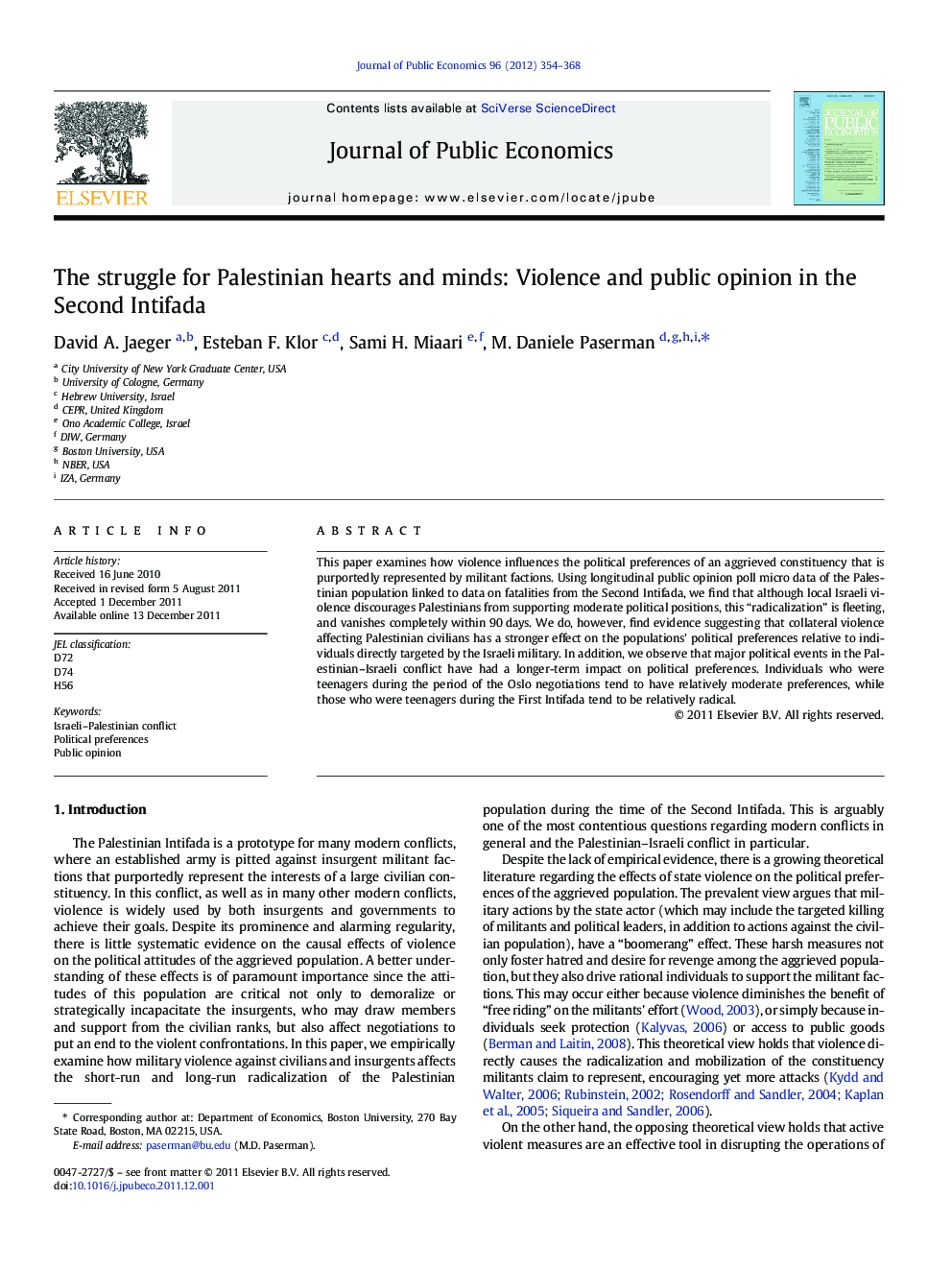| Article ID | Journal | Published Year | Pages | File Type |
|---|---|---|---|---|
| 968985 | Journal of Public Economics | 2012 | 15 Pages |
This paper examines how violence influences the political preferences of an aggrieved constituency that is purportedly represented by militant factions. Using longitudinal public opinion poll micro data of the Palestinian population linked to data on fatalities from the Second Intifada, we find that although local Israeli violence discourages Palestinians from supporting moderate political positions, this “radicalization” is fleeting, and vanishes completely within 90 days. We do, however, find evidence suggesting that collateral violence affecting Palestinian civilians has a stronger effect on the populations' political preferences relative to individuals directly targeted by the Israeli military. In addition, we observe that major political events in the Palestinian–Israeli conflict have had a longer-term impact on political preferences. Individuals who were teenagers during the period of the Oslo negotiations tend to have relatively moderate preferences, while those who were teenagers during the First Intifada tend to be relatively radical.
► This paper examines how violence during the Second Intifada affected Palestinian public opinion. ► Israeli violence pushes Palestinians away from moderate positions, but this effect vanishes within 90 days. ► Collateral violence affecting Palestinian civilians has a stronger effect on preferences. ► Major political events in the Palestinian–Israeli conflict have a longer-term impact on preferences.
